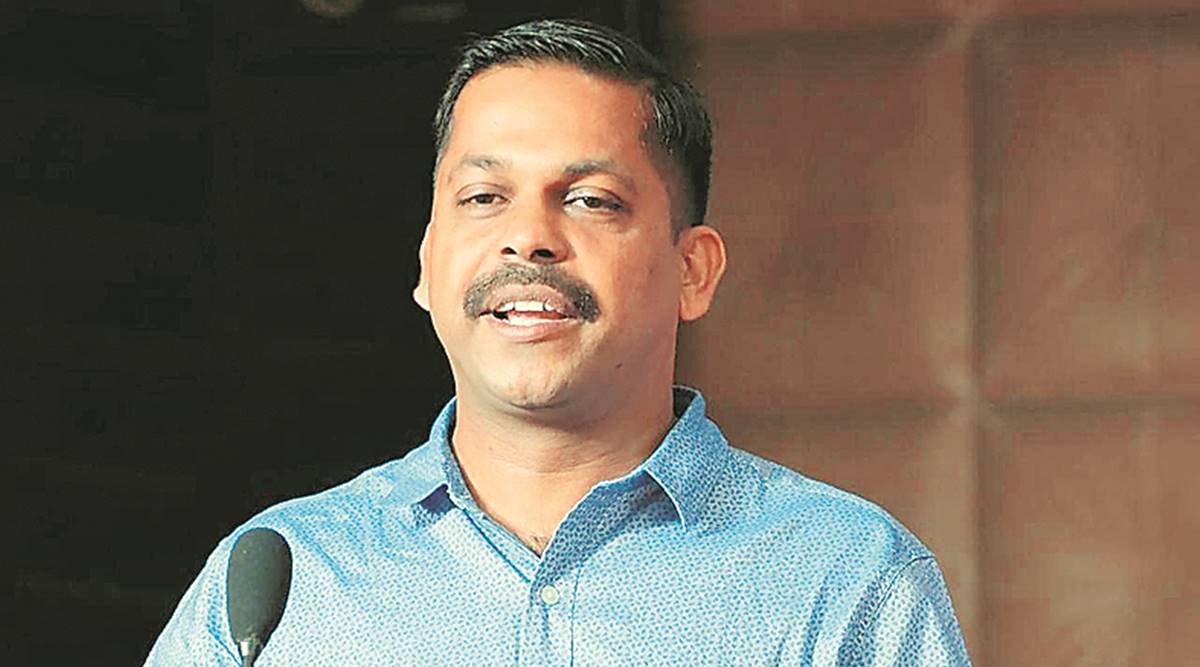
hat leap has now landed the 44-year-old and his company Techgentsia Software Technologies Pvt Ltd on the national centrestage — and a prize of Rs 1 crore.
ELEVEN YEARS ago, Joy Sebastian took a leap of faith. He wound up his career as a tech consultant in Kochi and moved to a village near Alappuzha where the state government had set up a 66-acre Info Park. His dream: start an R&D centre for video-conferencing solutions.
That leap has now landed the 44-year-old and his company Techgentsia Software Technologies Pvt Ltd on the national centrestage — and a prize of Rs 1 crore.
On Thursday, Techgentsia’s Vconsol was named as winner of the Ministry of Electronics & Information Technology’s Digital India “Grand Challenge” that was rolled out on April 12 to develop a world class video-conference solution — an Indian equivalent of Zoom in the time of Covid, according to officials.
For Sebastian, who hails from Pathirappally, a village near the backwaters and close to the Info Park, the challenge presented an opportunity —to showcase his dream to the world. “We decided to develop a product for the country. Now, that dream has materialised,” he says.
“I started Techgentsia in 2009 with a friend, Tony Thomas. We were classmates from school, and he has now moved to Australia. We have been focusing on R&D in video-conferencing solutions from the beginning, and have a few clients from the US, Europe and India for our B2B model. We have grown over the years, and now employ 65 people,” says Sebastian, who completed his MCA from TKM College of Engineering in Kollam.
Developed in three months, Vconsol’s USP is security, says Sebastian, “apart from all the features that are available on Zoom” in the premium option.
“Security has been pointed out as a problem with Zoom. Vconsol has addressed it with tighter measures. Each participant will have a different password. And, to ensure that only those expected or invited are able to join the video-conference, an OTP verification code will be sent to mobile phones of participants,” he says.
According to the IT Ministry, Techgentsia, which was picked from 1,983 applicants, will be provided with financial support of Rs 1 crore, and additional Rs 10 lakh for operation and maintenance for the next three years.
The start-up made its way through a longlist of 12 applicants, who were provided with Rs 10 lakh each to develop a prototype. Then, it cleared a shortlist of five, who were provided financial support of Rs 15-20 lakh for “mentorship, testing and onboarding” on the National Informatics Centre (NIC) cloud.
“In addition, the jury also selected products developed by three (other) applicants… and decided to offer a developmental contract to be supported by Rs 25 lakh each for further maturing their product within a period of three months,” the Ministry said.
All the four — Techgentsia, Sarv Webs Pvt Ltd (Jaipur), PeopleLink Unified Communications Pvt Ltd (Hyderabad) and Instrive Softlabs Pvt Ltd (Chennai) — will be supported by various government tech arms, including CERT-In and CDAC. The NIC, meanwhile, will facilitate their adoption on GeM, the government’s e-market portal.
Announcing the winner, IT Minister Ravi Shankar Prasad referred to Prime Minister Narendra’s Modi call for AatmaNirbhar Bharat and said: “We are committed to develop India’s software product and mobile app economy in a big way and efforts like this will go a long way in that direction.”
For the challenge, the jury and mentors included: Debjani Ghosh, NASSCOM chairman; Saurabh Srivastava, who heads Indian Angel Network, a grouping of investors; Sharad Sharma of iSpirit, a software think tank; and officials and experts such as Rajat Moona from IIT-Bhilai, Santanu Chaudhary from IIT-Jodhpur and Yatindra Nath Singh from IIT-Kanpur.
So what made them choose Sebastian’s fledgling firm? “Confidence in our technology and the ability of our developers,” he says.
No comments:
Post a Comment